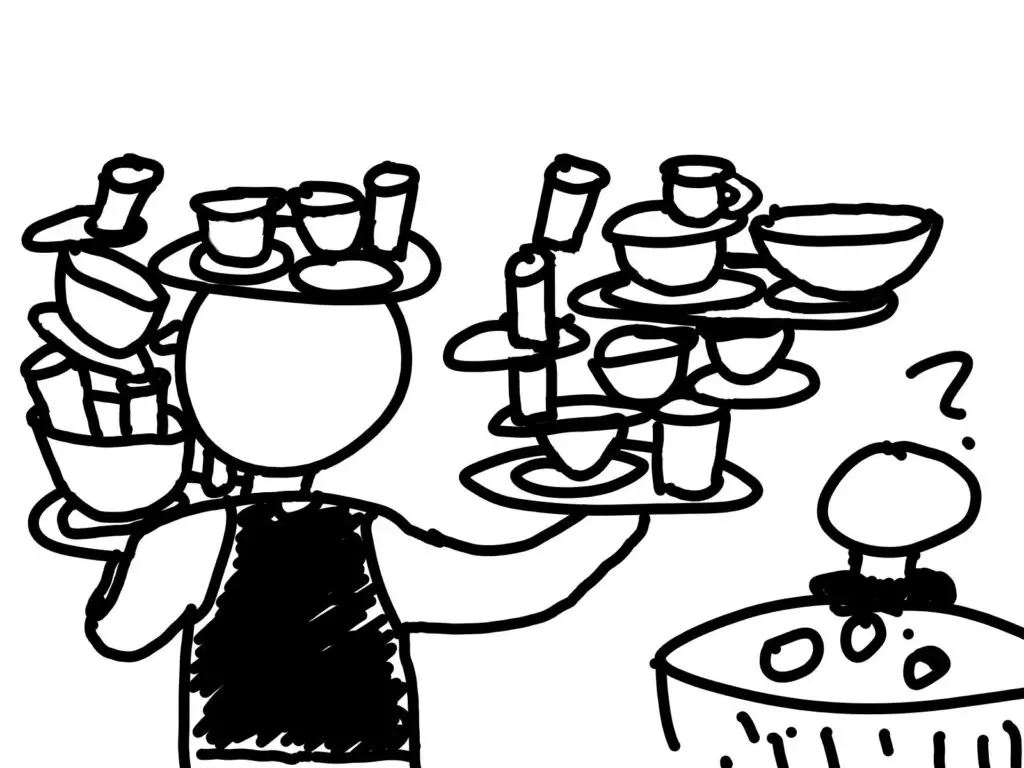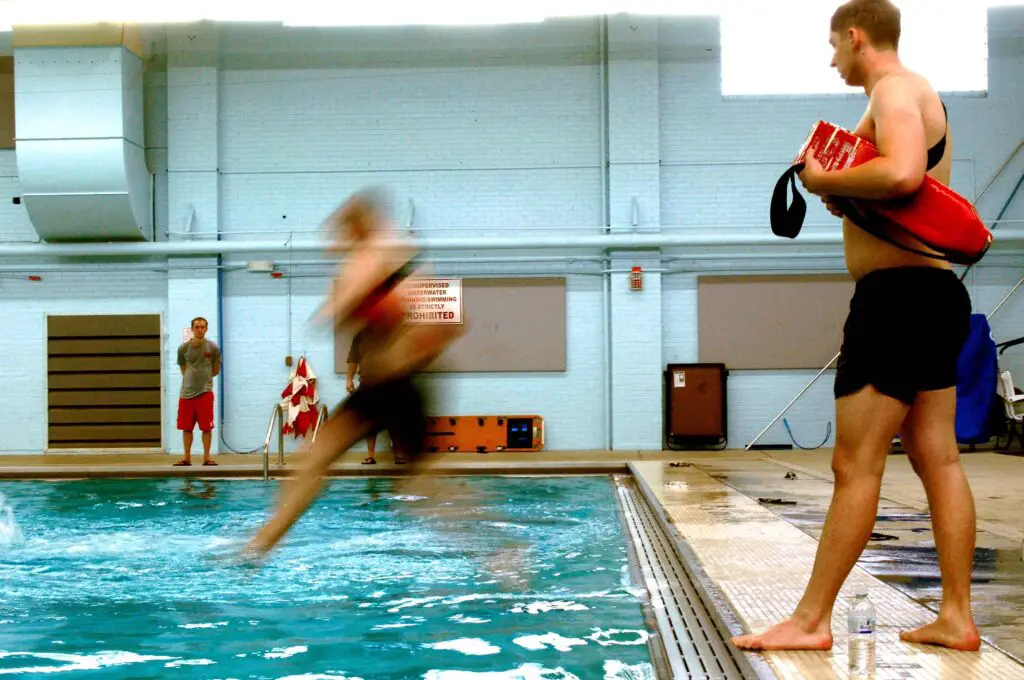Welcome to the labor force! You’ve reached the minimum age requirement to be exempt from most child labor laws, and if that’s not an exciting milestone then I don’t know what is!
As you no doubt have already found, finding your first job as a teenager can be stressful, confusing, and extremely difficult. You want to start making some extra money to fill up the car and pay for dates, but the labor force is an area entirely new to you, and you don’t even know where to start.
For all of you teenagers and young adults looking for a first job, relax- we’ve all been there. There are tips and tricks you can learn to make the process a whole lot easier, and make yourself an outstanding candidate for any part time job. Welcome to Getting Started, a series of articles where we break down the job application process, exploring not only how to land a first job but how to build upon your work and skills to move up in the world.
Starting From Nothing

At 16 years old, you’ve reached some of the first major milestones toward adulthood: driving and hourly work. At this age, you likely have never applied for a real job before. You might have spent a summer or two mowing lawns or watching the neighbors’ kids for extra cash, but those applications didn’t require a resume or a button-down. You can’t make good money ringing doorbells anymore, you have to put yourself out there and start building your professional image.
One of the biggest obstacles young workers with no experience face is exactly that: they have no experience. If you’ve done any browsing on online job sites like Indeed or Snagajob, you’re likely overwhelmed by the experience requirements for even the most entry level positions. Here’s where our first big tip comes into play.
Think Outside The Box
For an entry level job, your “work experience” history is what you make it. You might feel inclined to give up, as you don’t have any formal employment to put on your resume, or talk about in your interview. The secret to winning your first jobs is by turning everything into work experience. By taking other things you have done in the past, and explaining your roles and responsibilities in just the right way, you can make almost any activity look better than having a real employer.

The most obvious candidate for this little trick is your “summer employment” time doing odd jobs for friends and family. You may not realize it, but doing projects for others in your community builds some serious networking and customer service skills! You had to build relationships with new people, promote your services, and manage pricing, all just to get a few extra bucks for the ice cream truck. You’re right in thinking that a hiring manager doesn’t care that you have a summer job washing cars- what they do care about is the extra professional skills you developed along the way. When listing these kinds of projects and jobs on your resume, focus on those aspects, using concise action verbs. Take a look at these examples to get started:
–Networked within my community, acquiring clients and building quality professional relationships with repeat customers
-Managed a tight project schedule, making appointments with clients and completing projects on or ahead of schedule
-Engaged clients with a positive attitude, providing both excellent work and excellent customer service
The next group of experiences you can spin this way are your extracurricular and volunteer experiences. If you don’t have a whole lot of experience with “work” projects, this section is really your chance to shine. Once again, the key is picking out the skills you have developed through these experiences that you can translate to a professional setting. Hiring managers LOVE seeing leadership positions on your resume. No matter what you were a leader in or what your exact responsibilities were, those positions teach you important skills that you will use for the rest of your life. Managing tough situations, motivating people, raising or handling money, and delegating tasks are just a few examples of skills you might bring from a leadership position to the working world. Even without a real leadership role, other extracurricular activities and teams can teach you similar skills, like working with a group or managing a project schedule. Highlight these skills, more than the actual activities, in a similar fashion as the examples listed above.
Volunteer work teaches you not only important professional skills, but the value of connecting with your community. These experiences are a huge bonus to your resume, and an excellent place to draw answers from during a job interview, which we will discuss in a second. As you write your resume, emphasize the skills you learned, once again listing them with specific action verbs as above.
Apply Local
Now that you have the makings of a solid resume, the next obstacle is finding a job to apply for that fits your age requirement, school hours, and skillset (read: an entry level, part time job). Though you may occasionally get lucky with a friend or neighbor who needs an intern, most of the best jobs for 16 year olds are going to take some digging to find. The best place to start? The places in your area you go to every day.

As a 16 year old, you don’t want to have to drive a long way to get to work, and if you need a family member to give you a lift, they won’t want to drive too far either. It’s best to find places close to home, and many of these are places you already visit a lot! When you go to your favorite grocery store, mall, or restaurant, keep an eye out for those “We’re Hiring!” signs that you’ve ignored for so long. Chances are you’ll find a place that is hiring before too long, and don’t be afraid to ask an employee even if you don’t see a sign. The employee may not know much about the hiring process, but they’re always happy to point you towards a manager who does.
Once you find that manager, simply ask them how to apply. If you’re lucky, they may tell you to simply come back with a resume for an on-the-spot interview. In most cases, however, they’ll give you a business card or a website to go to, to submit your application online. The best thing to do is apply for a handful of jobs, that way you can keep your options open if a few don’t pan out.
Retail and food service jobs aren’t glamorous, but they are an important first step in building out those professional skills and experiences, as well as references to use on future job applications. These typical teen jobs can sometimes be good money for some young workers, but they are also very flexible in working with your school hours. You can’t work during the school day, but most of these minimum wage jobs have lots of employees, and can easily work around your hours of availability. If you do want to aim a little bit higher with your first shot, you can try to find an internship or part-time assistant job at an office, though the odds are much lower that you will be selected. A high paying job like that best found through networking with friends and neighbors, or even putting yourself out there on social sites such as Nextdoor.
For a more comprehensive overview of specific jobs and how to apply for them, check out the detailed list on the 18-year old installment of Getting Started, found here.
Be Persistent

Most applications that you submit will be entirely online, meaning the hiring manager will get almost no impression of you before the interview. You have to find ways to stand out as an ideal candidate for the position, within the limitations of the process. Creating a professional-looking resume is the first step: find a simple, clean template online and substitute your information, using the tips we discussed earlier and attempting to keep it to one page. The rest of the online application is likely just filling in basic information about availability and tasks you are interested in doing.
The next step to making yourself stand out is persistence. When I was looking for my first job, I applied to 30 job openings, and heard back from next to none. This is what the majority of kids your age do, and it gets them nowhere. Employers want to see that you are interested in the position, so being persistent and following up on your application will make you stand out a mile above the rest of the applicant pool. Give the application a week or so, and then call the place you’re applying to and ask about your application. They may tell you they are “moving forward with other applicants,” in which case you know not to waste any more time thinking about that particular job. They may tell you to contact them in another week, in which case you should do exactly that. Hopefully, the hiring manager sees you taking initiative, and asks you to come in for an interview, in which case: Congratulations, you’ve made it through the hardest part!
Think Outside The Box, Part II
Here you are, 16 years old, preparing for your very first job interview. It’s probably one of the most stressful things you’ve ever done: you don’t know what to expect, you aren’t experienced, and your entire employment hinges on it. However, I’ll let you in on a secret: it’s not as bad as it sounds. If you’ve been given a job interview for this kind of entry level job, you already have a very good shot of being hired. The main thing they are trying to find out is who you are beyond the resume.

For most good paying jobs for 16 year olds, the job interview will likely be very simple. They will probably ask you why you want the job, what makes you the best candidate, and potentially some extra “situational” questions. When answering these questions, think back to the process we used for writing your resume. They might ask you for an example of a stressful situation you managed, or a time when you helped someone without expecting anything in return. This is where your volunteer work and extracurriculars come into play, so think about situations you encountered there, and describe them in a way that highlights your best qualities, the ones that will make you a great employee.
The hiring manager knows a young person like you may have never applied for a job before, so the interview will likely be relaxed and relatively low pressure. Dress professionally, stay calm and collected, and do everything in your power to show them the ideal candidate that they want to see. You already possess those qualities within you, so simply let them show through. This job is within your grasp, now go and get it!
Good Paying Jobs For 16 Year Olds
Now that you have a good idea of how to apply for some of these part time jobs, let’s take a quick look at some examples of great teen jobs you can apply to and make that extra cash.
Delivery Driver: If you already have your drivers’ license, becoming a delivery driver for a local restaurant or online service can be a great option. These jobs are often flexible, and can work around your school hours. Driving for an online service is generally a high paying job, but in some areas the age requirement is 18 for liability reasons, so you may have to look at restaurants in your area instead.
Grocery Store: Speaking from personal experience, working in a grocery store such as Walmart or Kroger is one of the most character building occupations you can have. You build invaluable customer service experience, something that most minors age 16 will not have. You can be very particular about your availability, working a full 8 hour shift five days a week or as little as you want. It isn’t one of the most exciting or hazardous occupations, but your hard work will be rewarded, and standing out among other 16 year olds is easy. With just a little bit of dedication, you can quickly find yourself climbing up the ladder and making quite a bit more money than just minimum wage.

Swim Instructor: Another great youth employment opportunity is becoming a swim instructor at your local pool or community center. It is a great summer job for any teen who enjoys swimming and helping their community. You will likely need to undergo some basic water safety training, or obtain some kind of employment certificate before you can become a swim instructor and start making that money.
Dog Walker: Another potential high paying job for a resourceful teen like yourself is becoming a professional dog walker. What you may have written off as summer employment for kids in years past can in fact be a real occupation, and your can make good money doing it. Using social media and other dedicated dog walking apps, you can make money while having fun! These jobs are great because you can work anytime you want, and schedule each work hour around your school day and other commitments.
There are so many great job openings out there for 16 year olds, and as you get older and approach 18, child labor laws will open up an even wider range of possibilities. Don’t feel constrained to the occupations listed in this article, there are great youth employment opportunities everywhere! You might have to start out in a minimum wage job, but this first year or two is about building your resume, as well as your marketable skills.
Always look towards the future, and keep an eye out for more installments in the Getting Started series to help you build yourself up as a candidate throughout high school, college, and beyond!